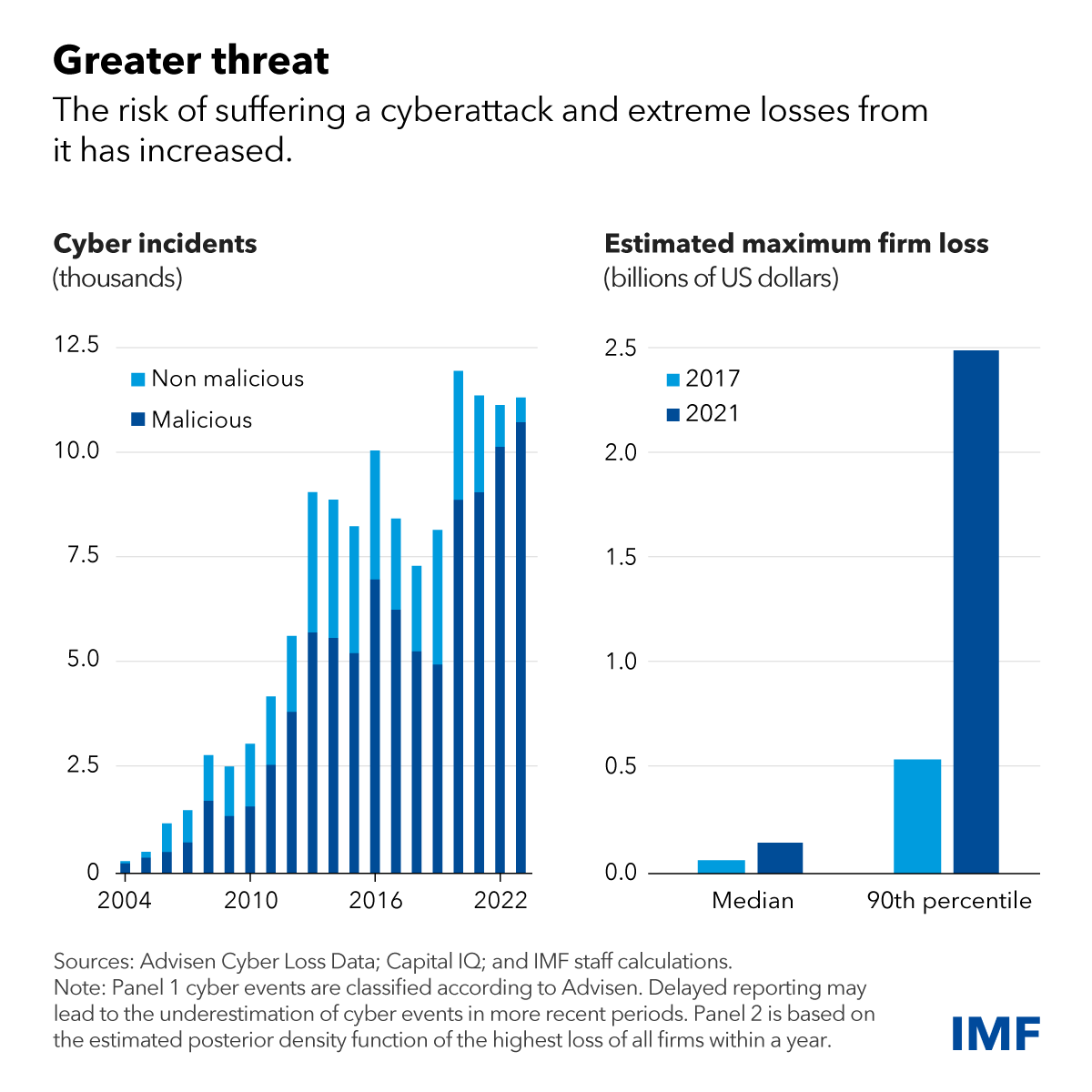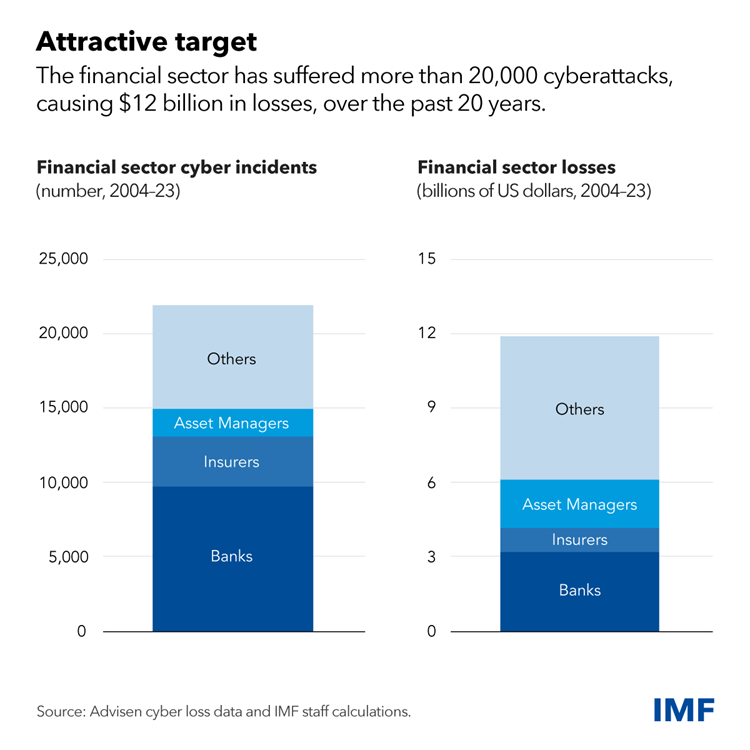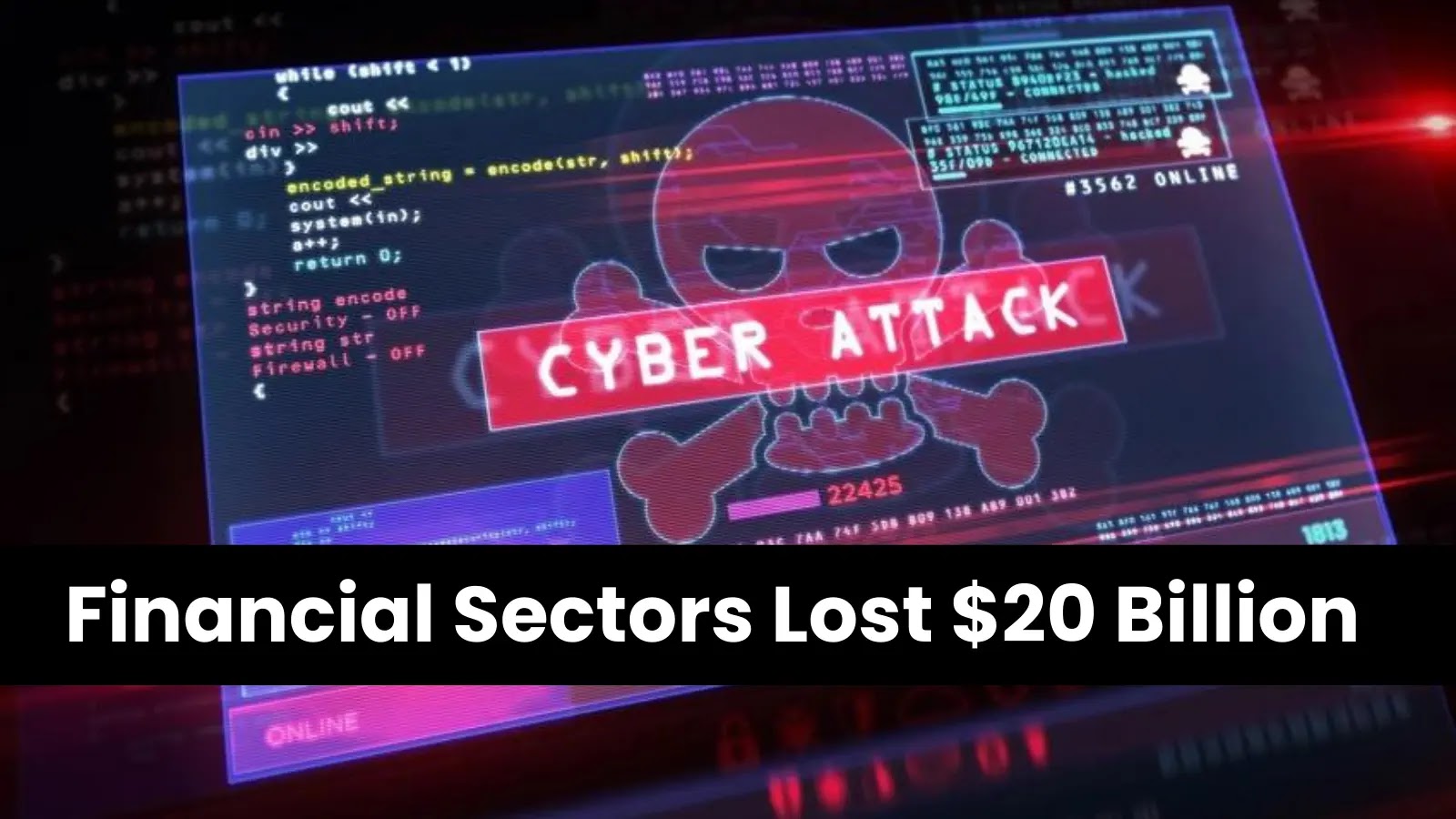Financial Sectors Lost $20 Billion Over the Past 20 Years
Financial Sectors Misplaced $20 Billion Over the Past 20 Years
In a startling revelation, cyberattacks maintain surged to bigger than double their pre-pandemic levels, casting a protracted shadow over world financial steadiness.
The International Financial Fund (IMF) highlighted this alarming model in its April 2024 International Financial Stability Represent, underscoring the escalating risk of catastrophic financial losses due to cyber incidents.
Historically, bid financial losses from cyberattacks on firms maintain been moderately contained. Nonetheless, obvious cases maintain demonstrated the functionality for devastating financial repercussions.
A principal instance is the US credit score reporting massive Equifax, which incurred over $1 billion in penalties following a foremost info breach in 2017, impacting approximately 150 million shoppers.

The IMF document attracts consideration to the rising magnitude of doable losses, which maintain seen a staggering invent bigger. The ticket of incorrect cyber incidents has quadrupled since 2017, reaching an unparalleled $2.5 billion. These figures attain no longer account for the indirect charges linked to such assaults, which encompass reputational wound and the costs linked to bolstering safety features.
Combine ANY.RUN in Your Firm for Effective Malware Diagnosis
Are you from SOC, Risk Analysis, or DFIR departments? If that is the case, it is doubtless you’ll maybe well perchance also be half of an on-line neighborhood of 400,000 self ample security researchers:
- Unswerving-time Detection
- Interactive Malware Diagnosis
- Easy to Be taught by Unique Safety Crew participants
- Salvage detailed reports with most info
- House Up Virtual Machine in Linux & all Windows OS Versions
- Work alongside with Malware Safely
In articulate for you to take a look at all these aspects now with free of price salvage admission to to the sandbox:
Financial Sector on the Epicenter of Cyber Dangers
The financial commerce finds itself in particular liable to cyber threats. With gargantuan amounts of gentle info and financial transactions below their purview, financial establishments are top targets for cybercriminals.
These adversaries purpose to either pilfer funds or disrupt economic actions. Banks, being the cornerstone of the financial sector, endure the brunt of those assaults, constituting nearly one-fifth of all cyber incidents.

The repercussions of cyberattacks on financial firms lengthen a long way beyond instantaneous financial losses. Such incidents can potentially erode public self belief within the financial system, disrupt wanted products and services, and even save off cascading outcomes across assorted establishments.
The IMF document warns of severe cyber incidents that may well maybe well precipitate market promote-offs or financial institution runs. Though the commerce has yet to bear in mind a foremost “cyber bustle,” proof means that cyberattacks maintain led to modest yet chronic deposit withdrawals from smaller US banks.
Beyond Financial Losses: The Broader Financial Affect
Cyberattacks save off financial losses and pose a risk to nationwide security. Incidents impairing severe products and services, such as price networks, can maintain a long way-reaching economic penalties.
For occasion, a cyberattack in December on the Central Bank of Lesotho severely disrupted the nationwide price system, hampering transactions by home banks and illustrating the functionality for in vogue economic disruption.
Moreover, financial firms’ increasing reliance on third-celebration service suppliers introduces extra vulnerabilities. The interconnected nature of those relationships formulation that a breach in one entity can maintain a domino waste, affecting extra than one establishments and products and services.
As the digital landscape continues to evolve, the IMF’s document serves as a stark reminder of the urgent need for enhanced cybersecurity measures.
The financial sector, in recount, must bolster its defenses to safeguard in opposition to the ever-rising risk of cyberattacks, which pose a foremost risk no longer handiest to particular particular person establishments nonetheless to world financial steadiness and economic effectively-being.
Ian Harrigan, director and co-founding father of i-confidential, urged Cyber Safety Details, âBanks are attentive to their location as prize targets for adversaries, so that they maintain answered to this risk by bettering their defenses a long way beyond most industries. But despite this, the IMF is clearly concerned that extra wishes to be accomplished.
Within the closing few months, we maintain witnessed third-celebration assaults in opposition to one of the foremost worldâs main banks. American Order and Bank of The US both launched customer info breaches following an assault on one of their suppliers. This highlights that even when banks steal stringent measures to protect their possess resources, this doesnât invent them proof in opposition to offer-chain assaults.
Fortunately, both these assaults handiest impacted a runt sequence of customers. But, if a financial institution, or a neighborhood of banks, were to endure a cyber assault the lower your expenses, info, and methods were impacted, the IMF is solely correct in pronouncing this can also erode self belief within the financial system. Which capability that, financial organizations may well maybe well accrued be on the forefront of protection.
“To combat present-chain assaults, financial organizations may well maybe well accrued be optimistic they cope with the protection fundamentals. This contains preserving a listing of all their suppliers, belief every dealer’s inherent risk, assuring suppliers in step with their classification or inherent risk, and, the save suppliers must remediate elements, following up to make optimistic they attain. To bolster this, organisations may well maybe well accrued also maintain in solutions how they and their third parties portion info or connectivity while also guaranteeing they adopt staunch security practices.”
“Internally, banks must embed security into all their processes, the save workers are frequently educated, security processes are adopted as fashioned, methods are saved updated, security alternate choices are deployed, and legacy equipment is saved segregated from mission-severe network areas to stay a long way from low inserting fruit for attackers.â Ian Harrigan acknowledged.
Source credit : cybersecuritynews.com






